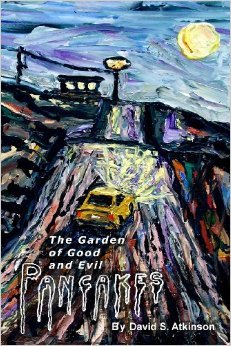Is It Permissable To Talk In Hypotheticals About Your Own Book?
Is it permissable to talk in hypotheticals about your own book? Is that bad form or not? Personally, I’ve always thought authorital intent only held so much value. It’s illuminative, but the text is controlling. Still, why not a hypothetical to consider?
Let’s consider a hypothetical about The Garden of Good and Evil Pancakes. Now, I’d never actually say this about the book, for a variety of reasons, but what if it was an experiment in experiential fiction?
After all, no one telling a story is ever impartially conveying the truth. It’s colored, whether intentionally or unintentionally (or both), by the teller. Any story, true or not, contains some amount of fiction. Merely by setting ourselves up to tell a story, we are already distancing the story somewhat from the truth by some degree of fiction.
This is just as true of the fictions we tell ourselves as those we tell others, perhaps more so.
Perhaps these layer upon each other, as well as compounding and conflating.
Regardless, what if the book were not about what was really happening to a character, or even their perception about what was happening, but about how they felt in what was happening? Perhaps the literal truth becomes a bit more symbolic of emotional reaction, confused all the way into the presented reality.
Perhaps.
Maybe there would even be multiple layers, different degrees of abstraction depending on the topics under consideration. More painful topics, ones the teller was less able to face, might be more abstracted than less painful topics…even to the point of rambling parables. Maybe the teller wouldn’t be aware of it, or would only be partially aware.
This is all mere rambling, though. I’m not saying that this is what The Garden of Good and Evil Pancakes is about. I wouldn’t say that. I’d never say that.
But what if?






